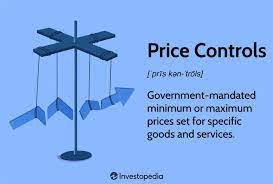Introduction
In the realm of capitalism, businesses operate with a primary focus on profit generation and market dominance. However, this pursuit of individual interests can lead to undesirable outcomes, prompting governments to step in and regulate various aspects of business operations.
Preserving Fair Competition
Government regulation aims to prevent unfair market practices that could hinder fair competition. By ensuring a level playing field, businesses have the opportunity to compete based on innovation, quality, and efficiency, rather than unethical practices.
Consumer Protection
Regulations safeguard consumer interests by ensuring product safety, accurate labeling, and fair pricing. This fosters trust between businesses and consumers, maintaining a healthy market ecosystem.
Worker’s Rights and Labor Laws
Government intervention protects worker’s rights, ensuring fair wages, safe working conditions, and reasonable working hours. Labor laws prevent the exploitation of employees by profit-driven businesses.
Environmental Conservation
Capitalism’s pursuit of profit sometimes overlooks environmental consequences. Regulations mandate eco-friendly practices, reducing the negative impact of business activities on the environment.
Mitigating Market Failures
Markets don’t always allocate resources efficiently. Governments step in to correct market failures by providing public goods, addressing information asymmetry, and managing externalities.
Preventing Monopolies and Anti-Competitive Behavior
Regulation prevents monopolies from stifling competition and innovation. Anti-trust laws promote healthy market dynamics and prevent concentration of economic power.
Ensuring Public Health and Safety
Industries like pharmaceuticals and food production are regulated to ensure products meet safety standards, protecting public health and safety.
Financial Stability
Government regulations oversee the financial sector to prevent economic crises, ensuring stable markets and maintaining public confidence in the banking system.
Taxation and Revenue Generation
Taxes on businesses generate revenue for public services and infrastructure development, enabling governments to provide essential services to citizens.
Global Trade Relations
Regulations manage international trade relationships, ensuring fairness and reciprocity, and protecting domestic industries from unfair competition.
Balancing Economic Growth and Social Welfare
Governments regulate to balance economic growth with social welfare, preventing extreme income inequality and ensuring a higher quality of life for all citizens.
Crisis Management and Economic Stimulus
During economic downturns, governments can regulate to stimulate economic activity, providing relief to businesses and preventing prolonged recessions.
Technological Advancements and Ethical Concerns
Regulations address the ethical implications of technological advancements, such as data privacy and artificial intelligence, ensuring responsible innovation.
Conclusion
In a capitalist society, government regulation of businesses serves as a vital mechanism to strike a balance between individual freedom and the collective well-being. By overseeing fair competition, consumer protection, worker’s rights, environmental sustainability, and various other aspects, governments play a crucial role in maintaining a thriving and equitable market economy.


